detail profile bohdan beniuk
Peran Yang Di Mainkan Bohdan Beniuk
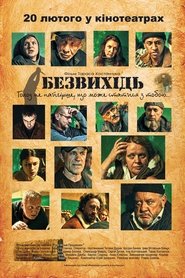 The film takes place in Chernihiv...
The film takes place in Chernihiv...Deadlock 2025
The film takes place in Chernihiv in the first days of the full-scale Russian invasion of Ukraine. A group of people of different ages and social status find themselves in the basement of a high-rise building, where they are hiding from shelling. After the explosion, the entrance is blocked and everyone stays in the basement for 7 days, facing hunger and constant danger. Under the pressure of fear and uncertainty of who will find them — the Ukrainian army or the Russians — people are divided into warring groups.
 A wealthy peasant Herasym Kalytka wants...
A wealthy peasant Herasym Kalytka wants...Lucifer's Case 2024
A wealthy peasant Herasym Kalytka wants to buy his neighbor's land, but he doesn't have enough money. The unknown offers him to buy one hundred thousand fake money for five thousand. Herasym together with the best man Savka buy this money. But instead of money, they are sold blank paper. In desperation, Herasym wants to hang himself, but he is saved. Kalytka's greed almost ended in tragedy, but he continues to dream of land.
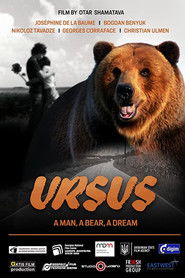 Ursus is a story of three...
Ursus is a story of three...Chola the Bear 2021
Ursus is a story of three outcasts—Georgian unemployed film director, Ukrainian ex-stuntman and a Canadian female fighter for the wild animals' rights—making their desperate journey from Tbilisi, the capital of ex-Soviet Georgia plunged into a civil war, to Berlin at the beginning of 1992. Each of the three characters pursues their own goal without even knowing how much their fates are intertwined.
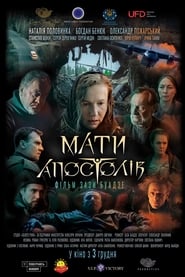 Motherly love has no limits When...
Motherly love has no limits When...Mother of Apostles 2020
Motherly love has no limits. When a son is in danger, the mother does not hesitate to rush to his aid. For the sake of saving the child, she is ready to do anything. She even is ready to go through the hell of war. When Sofia finds out that a transport plane, the pilot of which is her son, was shot down, she sets off for the front line. Her journey is full of dangers. She does not know whether her son or any other member of the crew survived. She has no friends there on the unfamiliar territory, no helpers, no clear plan. There is only her willpower. But it is her will and love that help her to find people who begin to sympathize and help her, and thereby change themselves. A dangerous journey turns her from the mother of one pilot into the mother of all who need to be saved, who need the spiritual rebirth. She is ready to come for even those whom she considered an enemy.
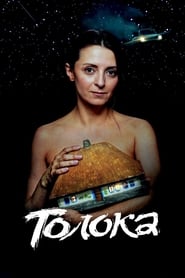 There is a ballad written by...
There is a ballad written by...Toloka 2020
There is a ballad written by Ukrainian poet Taras Shevchenko called “That Catherine's hut is on the hill...". It is about a rescue of Catherine's lover, whom she saves by posing him as her brother. This story, as a parable, flies throughout Ukraine's history and reconstructs its dramatic and heroic episodes. Every challenge, including the Chernobyl accident, leaves Catherine without her home. But she is stubborn, as many generations of Ukrainians, in rebuilding her house out of pieces. The story is not only about Catherine's redemption, but also about Ukraine's survival throughout the centuries that is reflected in a folk tradition called Toloka.
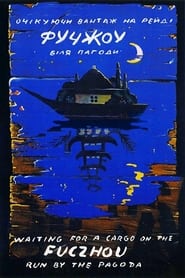 The action is set at the...
The action is set at the...Fuchzhou 1993
The action is set at the start of the twentieth century, between a village by the River Dnyepr and the coast of Florida. While the story has ironic, romantic and sometimes mystic angles, the bitter aspects of emigration from the Ukraine to the United States become clearly visible.
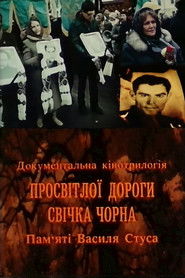 Documentary trilogy about the thorny path...
Documentary trilogy about the thorny path...Black Candle of the Bright Road. In memory of Vasyl Stus 1992
Documentary trilogy about the thorny path of the famous Ukrainian poet, translator, political prisoner Vasyl Stus. Filmed in 1989-1992, it describes the life of the poet, the story of the destruction of the dissident by the Soviet authorities, highlights his influence on Ukrainian society during life and after his death, records the testimony of witnesses, films the liquidated Kuchino camp, in which Stus was imprisoned, the reburial of Stus, Lytvyn and Tykhy in 1989. Consists of three parts: «Come back to me, my memory» (Верни до мене, пам’яте моя), «In the white cold the sun of Ukraine» (У білій стужі сонце України), «Crucified on a black cross» (Розіп’ятий на чорному хресті).
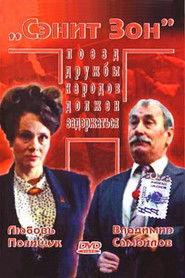 The action of the film takes...
The action of the film takes...Sanit Zone 1990
The action of the film takes place in one of the provincial towns, where on the occasion of the relocation of the defense plant and, as a result, the opening of the city for foreigners, they meet the "Caravan of Peace". They make a whole performance out of an ordinary event: ten loaves are baked and they are going to hand them over to the guests according to the old Russian custom, but suddenly they discover that the eleventh bread has appeared..
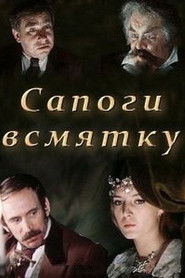 The film is based on the...
The film is based on the...Soft-Boiled Boots 1978
The film is based on the stories Anton Chekhov. It is a tribute to the actor Boris Andreyev. He plays a major role that keeps up for the duration of the film. Lively and intelligent Valery Spout largely mitigates underline the drama of the protagonist, while Michael Sveta's role, though small, is bright and memorable.
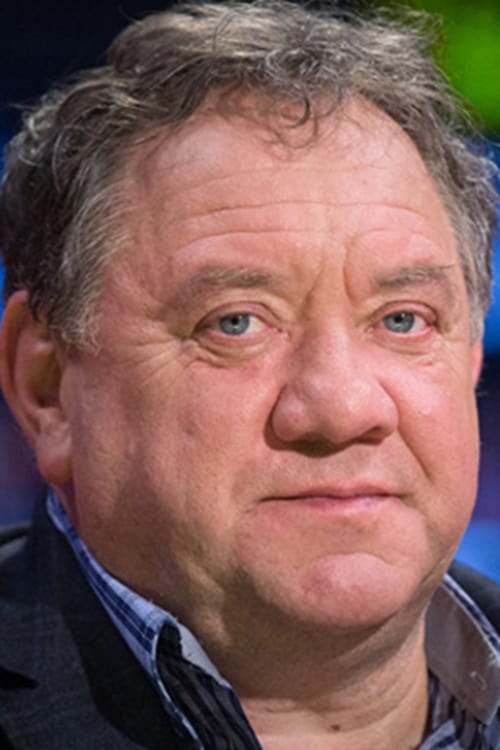
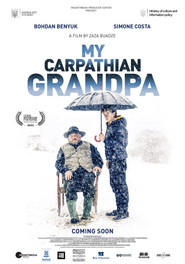 Young Italian Michele who has Ukrainian...
Young Italian Michele who has Ukrainian...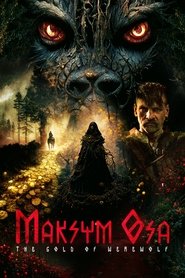 Ukraine 1636 Someone has attacked a battalion...
Ukraine 1636 Someone has attacked a battalion... Few weeks of Taras Shevchenko in...
Few weeks of Taras Shevchenko in...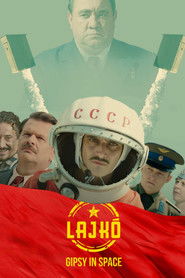 In 1957 the Soviet Union decides to...
In 1957 the Soviet Union decides to... A docudrama about the escape of...
A docudrama about the escape of...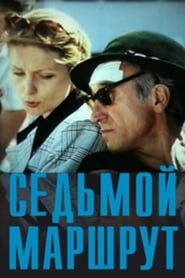 The film takes place in Kyiv...
The film takes place in Kyiv...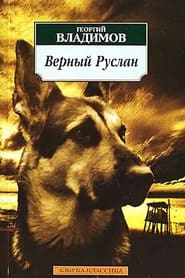 A Russian madeforTV film about a...
A Russian madeforTV film about a...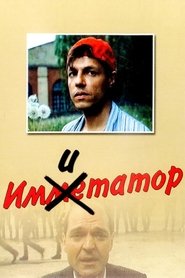 The young man decides to go...
The young man decides to go...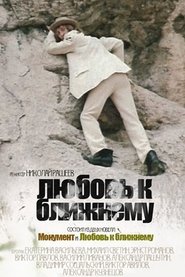 The film consists of two short...
The film consists of two short...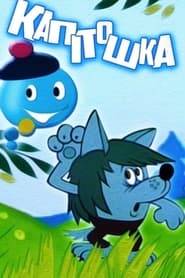 Animation film about a friendship between...
Animation film about a friendship between...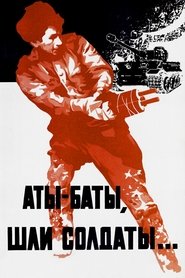 The families of 18 soldiers who heroically...
The families of 18 soldiers who heroically...